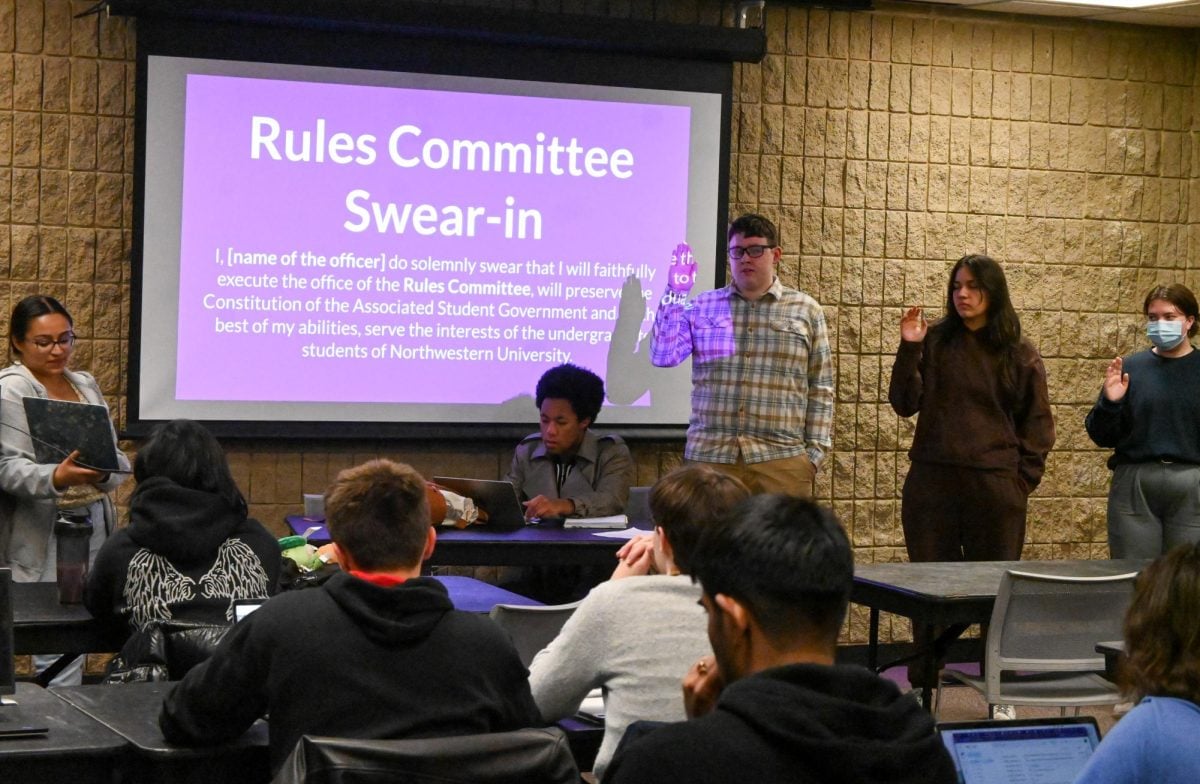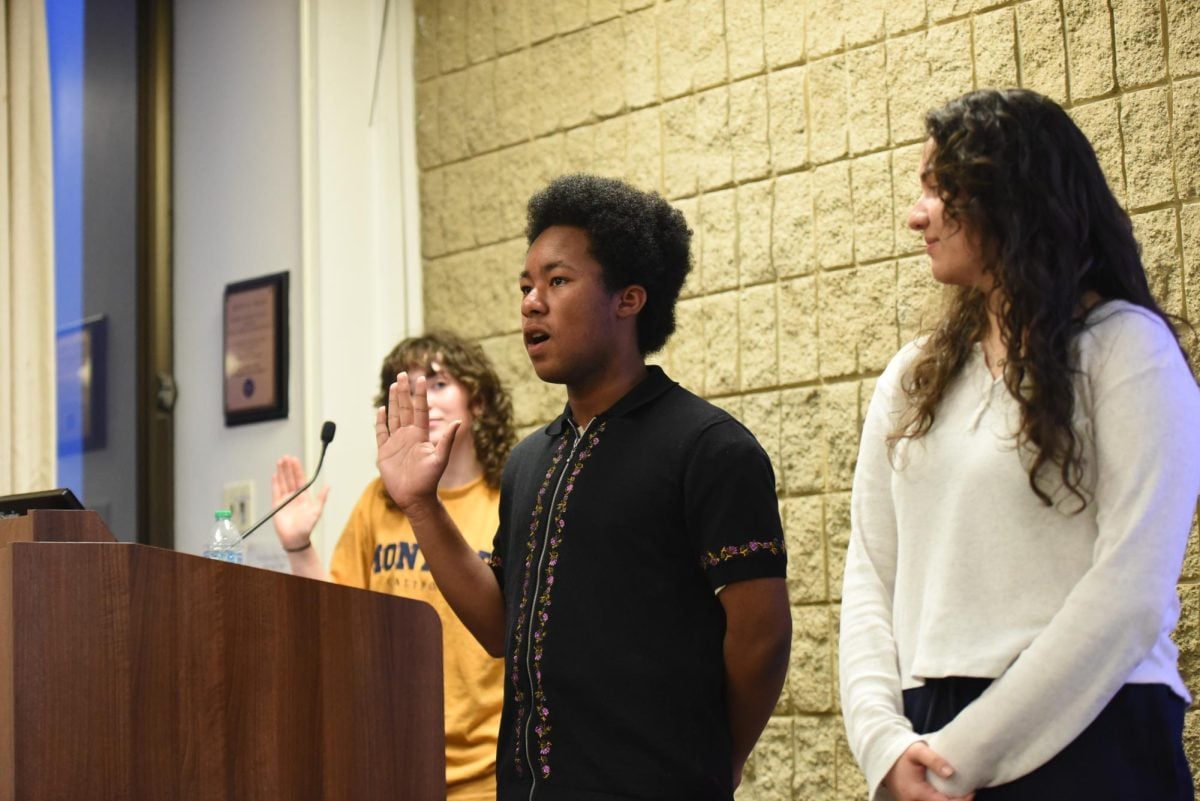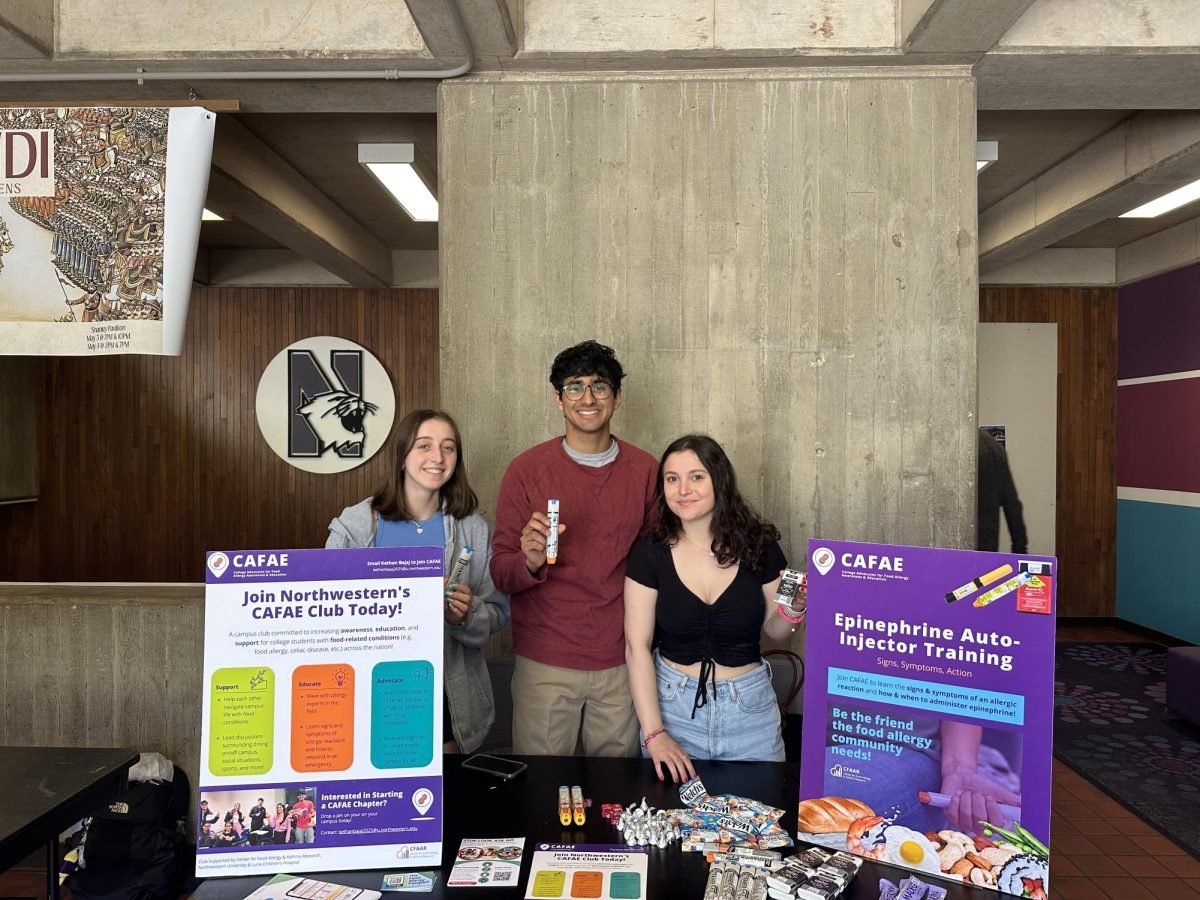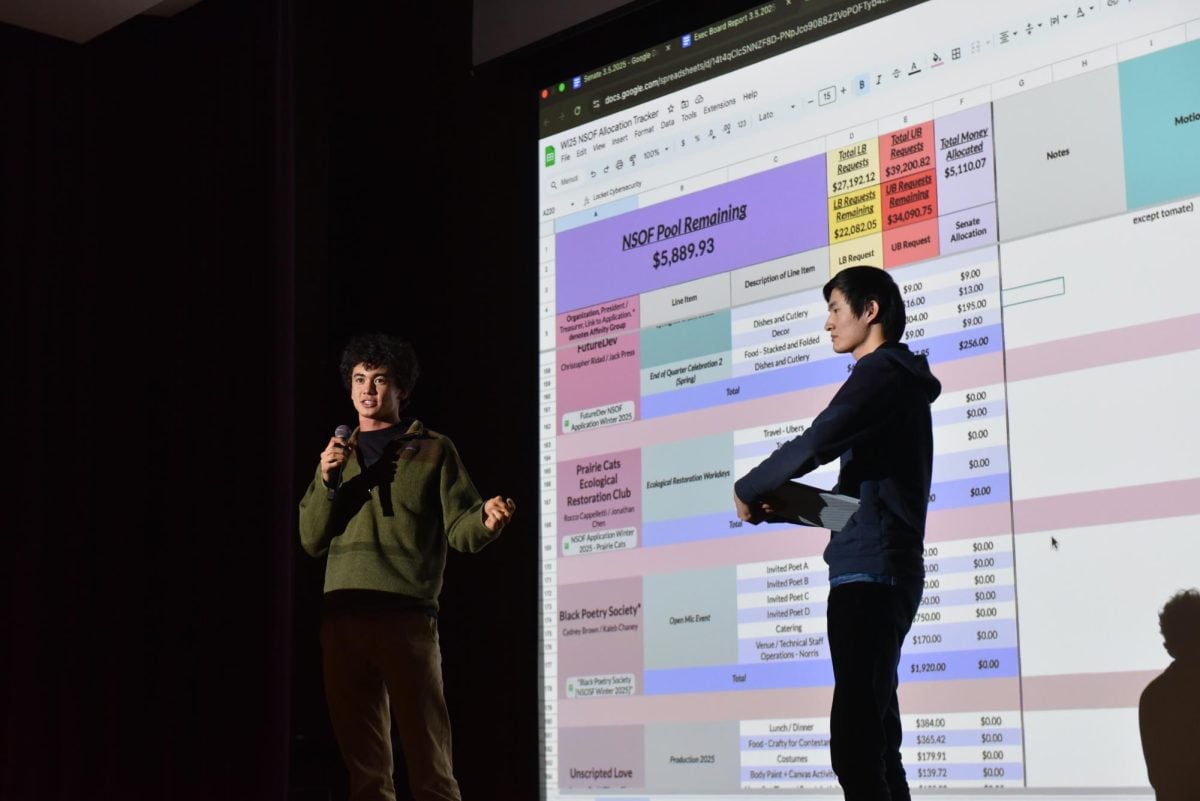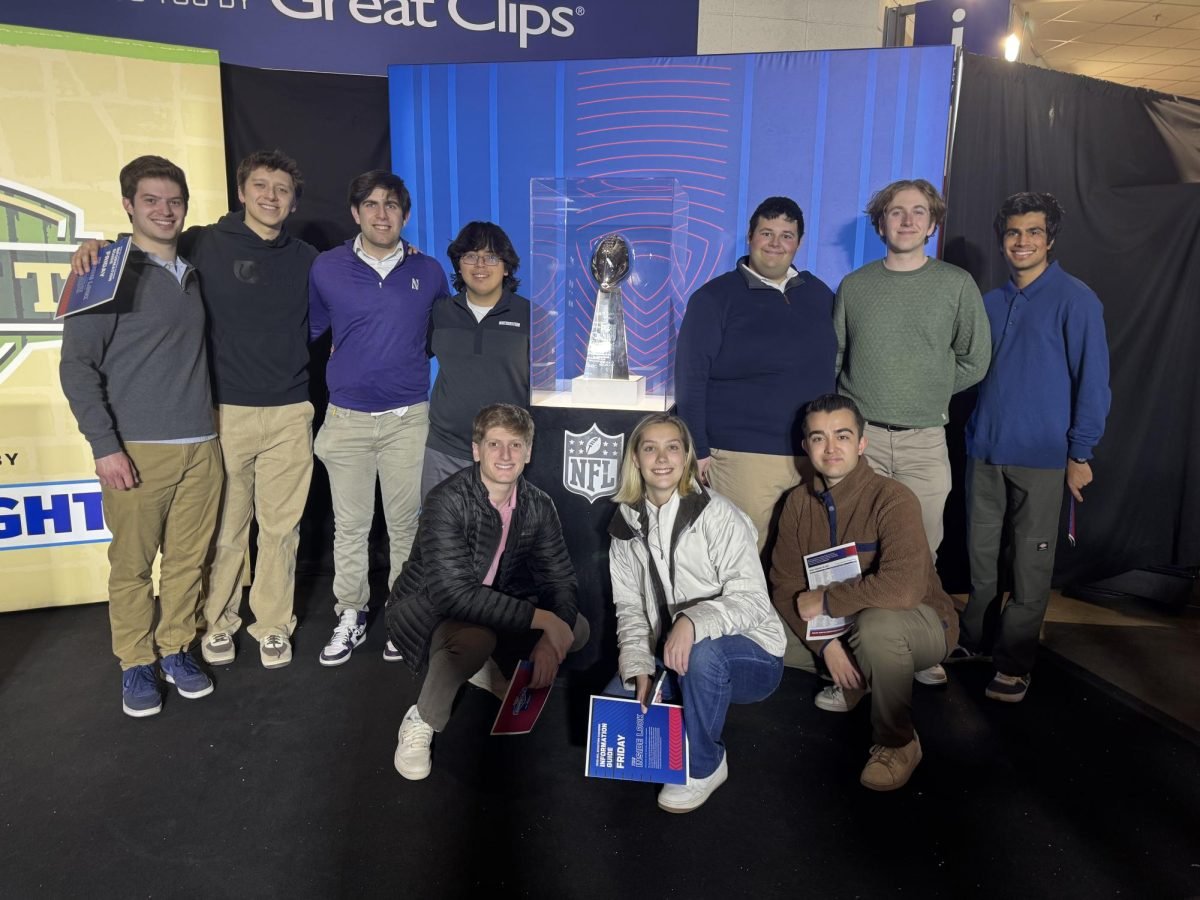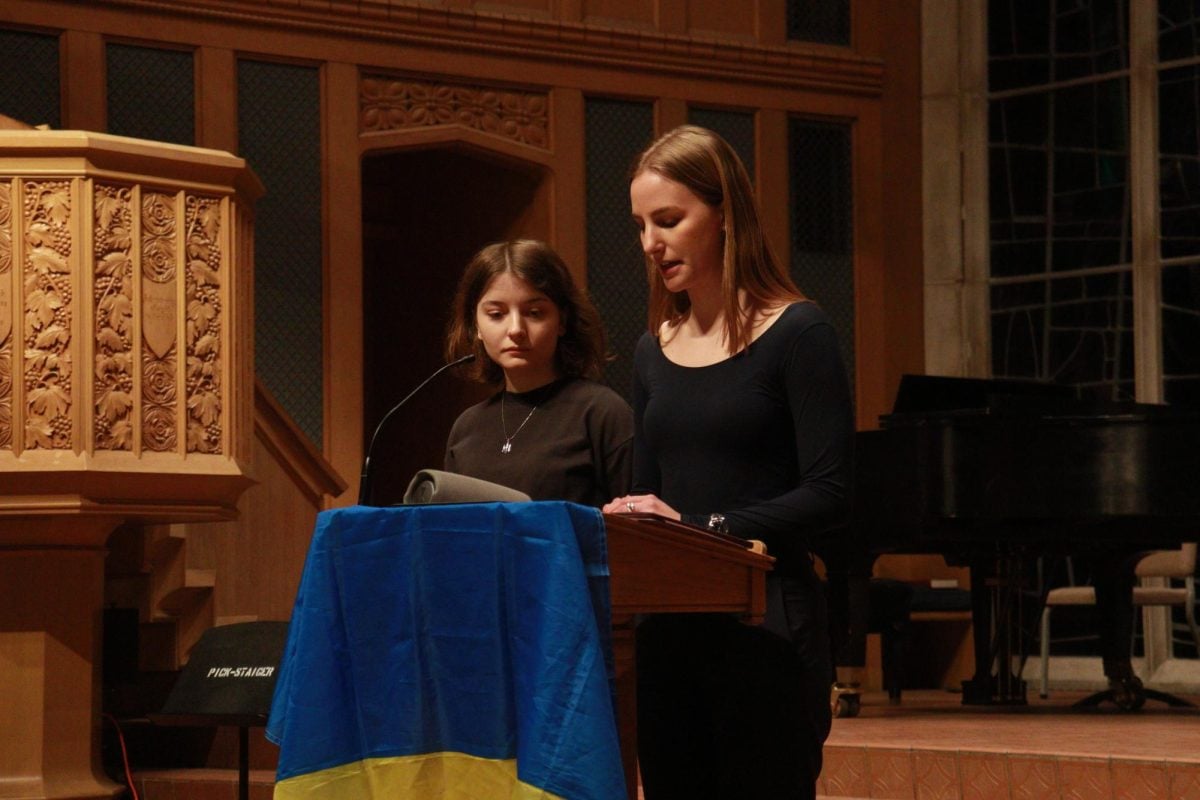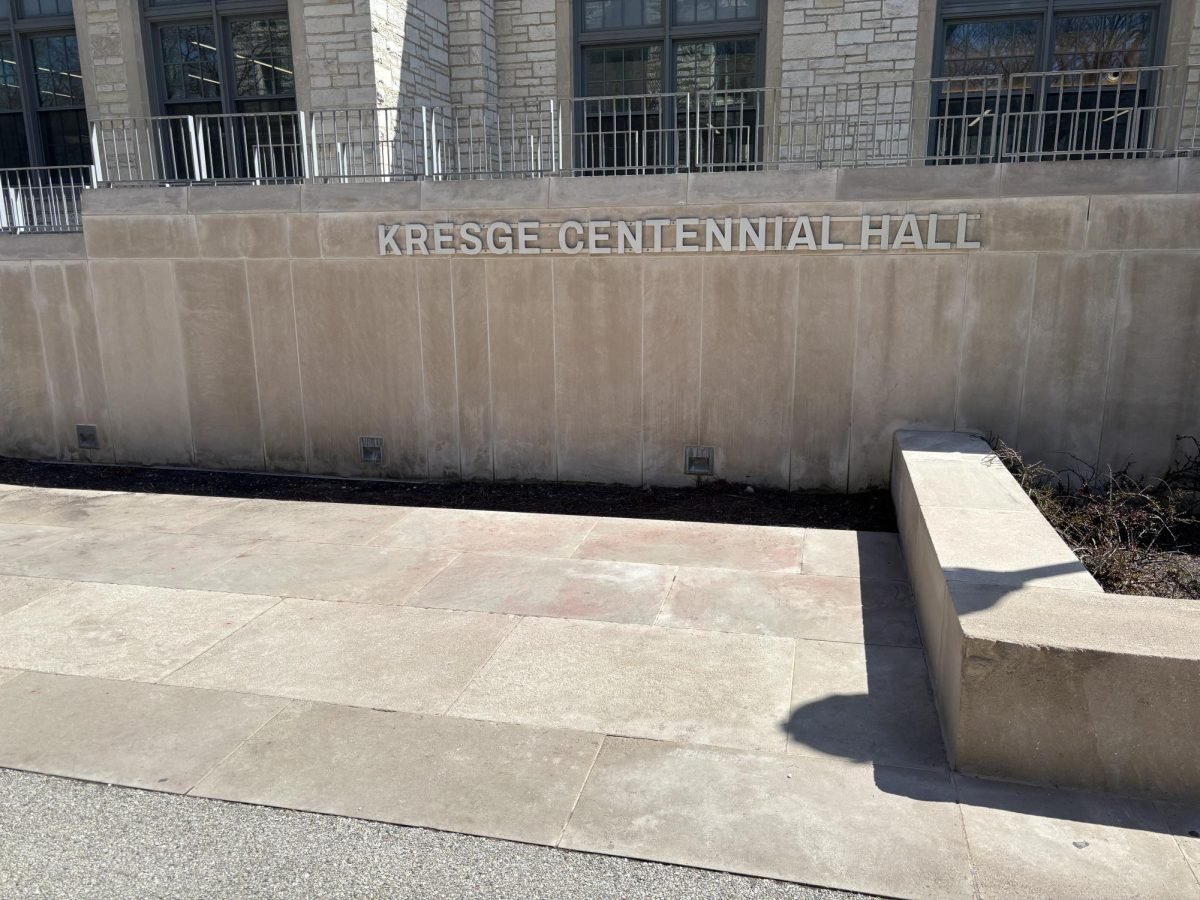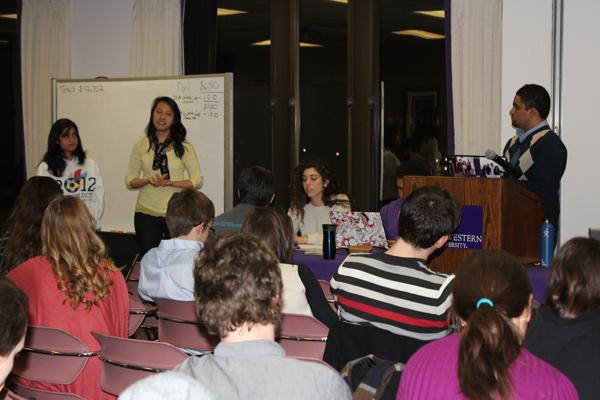
The Tannenbaum Chabad House dispute that embroiled Northwestern in litigation this past fall reached the floor of the Associated Student Government meeting Wednesday night as the Senate passed a resolution calling on the University to “help facilitate the disclosure of more information to students.”
Senators and members of the Chabad House student executive board debated a resolution that calls on the University to be more transparent in its decision to disaffiliate with Chabad House and its leader, Rabbi Dov Hillel Klein. The University formally disaffiliated with Klein in September due to concerns he was violating alcohol policy by serving underage students and has not commented on the decision due to ongoing litigation surrounding the matter.
Senator Harrison Flagler, a Bienen freshman, first presented the resolution at the Feb. 13 meeting of the Senate. On Wednesday night, senators voted to amend the original resolution so that it did not call on the University to “open channels of communication” with Klein and Chabad House and “pursue a process to reaffiliate.” The amended resolution called on the University generally to be more open with information.
The legislation passed by a narrow majority following calls to extend discussion twice. Students from Chabad House spoke on behalf of the resolution. Chabad House student executive president Matthew Renick compared the University’s decision to disaffiliate to having “the carpet ripped out from underneath us” and called ASG to make sure this does not happen to another organization again.
“In the future should this happen again, transparency would be expected,” the Communication senior said.
Despite the strong showing of support from several ASG senators and the Chabad House executive board, the resolution was strongly opposed by several ASG members, including ASG president Victor Shao and executive vice president Brad Stewart. Shao and Stewart said they both met with Patricia Telles-Irvin, vice president for student affairs, in September to discuss the issue, and she could not give them any information due to the ongoing litigation.
“Their lawyers are going to supersede anything we do in this body,” Stewart said. “They basically have a gag order.”
The Medill senior said passing the resolution would “have absolutely no impact.”
“It will only serve to antagonize administrators we need to work with on a daily basis,” Stewart said.
Meredith Goodman, a Daily columnist, gave a very personal account of Klein’s impact on the entire NU community, particularly as a first responder in cases where students were considering suicide.
“Transparency will help everyone to see how great of a community leader he is for students of all faiths at Northwestern,” the Weinberg sophomore said.
Shao opposed the debate becoming “personal,” stating it should remain about the case. He compared Klein to award-winning cyclist Lance Armstrong, who admitted he used steroids this fall after raising millions of dollars for cancer research.
“It’s an example that highlights good people can still do wrong,” the Weinberg senior said. “We’ve already done what we can.”
Senator Evan Frohman, a Weinberg freshman, gave a speech on behalf of the legislation after Shao reminded senators of the role of ASG in facilitating communication with students and the administration. He said even though students likely would not attain new information due to the litigation, the resolution still fell under ASG’s obligations.
“You’re just telling students you don’t even have the right to ask for information,” he said.
Despite arguments from the executive board that ASG had already asked for that information and had been denied, the resolution still passed. Stewart declined to comment on the decision to pass the resolution.
Prior to the debate about Chabad House, ASG also finalized funding for B-status student groups, allocating a total of $12,802. At Wednesday’s meeting, three groups appealed to add more funds than they were initially allocated. ASG approved a request from International Student Association World Cup for an additional $100 to replace a broken soccer goal. The Senate denied their request for additional funding for a medic, following a discussion in which senators expressed concern that the group had not yet explored other ways to fund medical care at the event. The body also denied requests for additional funding from both Relay for Life and AISEC. ASG Speaker Ani Ajith, a Weinbeg junior and former Daily staffer, said funding was limited to many groups because ASG received more applications than ever before. Stewart said despite this increase, currently there are no plans to increase the Student Activities Fee that each NU student pays that provides this funding.
Senator Ian Coley presented new legislation to allow students to rent out Windows computer chargers in the libraries, which was passed at Wednesday’s meeting. The Weinberg senior also presented a resolution which calls on the University to explore John Evans’s involvement in the Sand Creek massacre, which will be debated at next week’s Senate.
At Wednesday’s meeting, ASG also selected Katie Funderburg, a Weinberg junior, to participate on the selection committee for the financial vice president and Motoki Mizoguchi, a McCormick senior, to participate on the selection committee for student groups vice president. Daily staffer Anna Kottenstette, a member of the student life committee and communication junior, was named the director of residential life.
Correction: A previous version of this story misspelled the name of the Sand Creek massacre. The Daily regrets the error.






